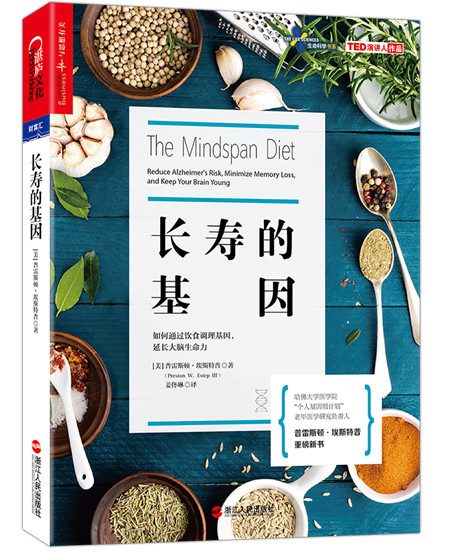Eat and exercise your way to a long, healthy life
 |
|
A Chinese translation of Preston Estep's Mindspan Diet. [Photo provided to China Daily] |
When Preston Estep walked into a meeting room at Tsinghua University on a recent sunny afternoon, he looked lively despite his busy travel schedule in China. Estep is the director of gerontology of Harvard's Personal Genome Project, a study being conducted by the medical school of the university.
Estep, who spoke in Shanghai two days prior to Beijing, was to do a presentation on the influence of diet not only on physical but on mental longevity.
A recent study shows that deaths due to Alzheimer's and other kinds of dementia rose more than threefold between 1990 and 2010. Deaths due to Parkinson's around the world doubled during the same period.
"These diseases appear to be increasing in frequency at every age," Estep wrote in his recent book Mindspan Diet, a Chinese translation of which is now available.
For him, people's minds and memories are the basis of all our thoughts, wisdom, feelings and relationships, and are thus "humanity's most valuable treasures", so dementia for him is the greatest threat to people. He uses the word "mindspan" to refer to mental longevity.
Estep, about to turn 56, looks younger. He attributes this to his diet that makes him not only look younger, but also "feel younger".
Following a diet that will not only make people live longer, but also have a clear mind in old age is the theme of Mindspan Diet, he says.
Estep wrote the book due to his experience of having to "live through the progressive mental decline of grandparents on both sides of my family".
Estep says about 30 years ago, his grandmother began to show signs of dementia before she died a few years later.
He remembered that in the last years of her life, she used to eat a cereal with high iron content.
















